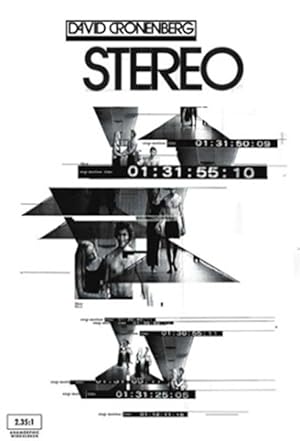
Stereo Page #3
- NOT RATED
- Year:
- 1969
- 65 min
- 337 Views
any experiment in parapsychology
are inextricably mixed with the individuals
and the phenomological sets involved
in that particular experiment
and cannot be abstracted
from those individuals
or phenomological sets.
The conditions of experiments
in parapsychology are unique,
non-uniform and non-repeatable.
A completely non-scientific burden
is therefore place upon the researcher
for if the peronal relationship between
researcher and subject deteriorates
the experiment cannot continue
along its natural course.
The sensitivity of the experimental
parapsychological plexus
demands new methods
to help maintain the emotional
momentum in certain experiments.
Proving notice
that the motto of the Canadian
Academy for Erotic Inquiry
has immediate relevance for the Stringfellow induced telepathy series.
"Amor vincit omnia."
Or:
"Love conquers all."We understand that the unique way
in which an individual perceives
and reacts to his environment
is a funstion of his own
experiential space continuum.
When object events enter the experiential
space continuum of that individual
they become an integral
organic part of that space.
They are actually changed,
qualitatively modified
in accordance with the
creative nature of that space.
But we are now dealing with telepathists.
In theory
the experiential space continua of
two or more telepathists can merge,
can blend together to an extent far beyond
the range of normal human experience.
What would be the organic nature
of communal experiential space
shared among eight psychosomatic entities?
Would one person, one mode
of perception and reaction,
one experiential space continuum
dominate this oversoul?
Or, would each mind participate
in the synthesis of a uniform
unlike any of its constituents?
How would the physical and social functioning
of members of this group be altered?
recognisable modes at all?
There is some evidence to suggest
the potential telepathic intensity
varies indirectly as the square of the
distance between two telepathists.
An increase in physical distance may
therefore be used by one telepathist
as an effective defence against telepathic
intrusion on the part of another telepathist.
A far more sophisticated
intrusion avoidance device
known as schizophonetic partition
was evolved by one of the female subjects
during the group isolation sanitorium phase.
by fellow subjects to establish
potentially intrusive telepathic rapport
she completely separated her
telepathic, non-verbal self
from her oral verbal self.
The telepathic self functioned
Translation
Translate and read this script in other languages:
Select another language:
- - Select -
- 简体中文 (Chinese - Simplified)
- 繁體中文 (Chinese - Traditional)
- Español (Spanish)
- Esperanto (Esperanto)
- 日本語 (Japanese)
- Português (Portuguese)
- Deutsch (German)
- العربية (Arabic)
- Français (French)
- Русский (Russian)
- ಕನ್ನಡ (Kannada)
- 한국어 (Korean)
- עברית (Hebrew)
- Gaeilge (Irish)
- Українська (Ukrainian)
- اردو (Urdu)
- Magyar (Hungarian)
- मानक हिन्दी (Hindi)
- Indonesia (Indonesian)
- Italiano (Italian)
- தமிழ் (Tamil)
- Türkçe (Turkish)
- తెలుగు (Telugu)
- ภาษาไทย (Thai)
- Tiếng Việt (Vietnamese)
- Čeština (Czech)
- Polski (Polish)
- Bahasa Indonesia (Indonesian)
- Românește (Romanian)
- Nederlands (Dutch)
- Ελληνικά (Greek)
- Latinum (Latin)
- Svenska (Swedish)
- Dansk (Danish)
- Suomi (Finnish)
- فارسی (Persian)
- ייִדיש (Yiddish)
- հայերեն (Armenian)
- Norsk (Norwegian)
- English (English)
Citation
Use the citation below to add this screenplay to your bibliography:
Style:MLAChicagoAPA
"Stereo" Scripts.com. STANDS4 LLC, 2024. Web. 24 Apr. 2024. <https://www.scripts.com/script/stereo_18876>.



Discuss this script with the community:
Report Comment
We're doing our best to make sure our content is useful, accurate and safe.
If by any chance you spot an inappropriate comment while navigating through our website please use this form to let us know, and we'll take care of it shortly.
Attachment
You need to be logged in to favorite.
Log In